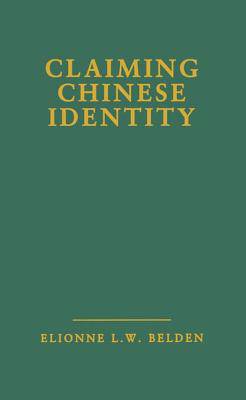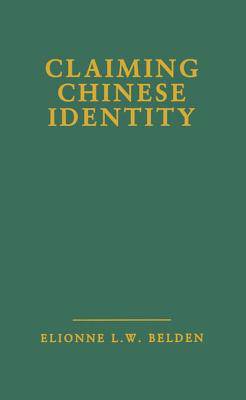
- Retrait gratuit dans votre magasin Club
- 7.000.000 titres dans notre catalogue
- Payer en toute sécurité
- Toujours un magasin près de chez vous
- Retrait gratuit dans votre magasin Club
- 7.000.0000 titres dans notre catalogue
- Payer en toute sécurité
- Toujours un magasin près de chez vous
236,95 €
+ 473 points
Description
This study of first generation Chinese youth and their parents who have immigrated to Houston reveals the ways in which this group resists assimilation into the dominant Western milieu and instead accommodates itself as a paracommunity with the culture of its host city. Chinese parents counter Western influence on their children by enrolling them in Chinese language schools, having them participate in Chinese community events, and encouraging them to develop a network of Chinese friends. The study presents a detailed ethnography of a Chinese language school. It traces the negotiations between traditional Chinese beliefs-in particular, unquestioned submission to authority, kinship systems, and the denial of the singular self-and the developed sense of self in Western individualism. This study of identity reformation clearly indicates that there is space within the dialectics of immigration and the related cultural processes that enables the immigrant community to resist the image of all diasporic people as liminars and hybrids. The Chinese in this study do not sacrifice their past and their values in order to reformulate themselves for the present. Rather, they are determined to create a self-referential identity within a living and growing Chinese culture.
Spécifications
Parties prenantes
- Auteur(s) :
- Editeur:
Contenu
- Nombre de pages :
- 194
- Langue:
- Anglais
- Collection :
Caractéristiques
- EAN:
- 9780815329916
- Date de parution :
- 01-10-97
- Format:
- Livre broché
- Format numérique:
- Trade paperback (VS)
- Dimensions :
- 138 mm x 216 mm
- Poids :
- 519 g

Les avis
Nous publions uniquement les avis qui respectent les conditions requises. Consultez nos conditions pour les avis.






